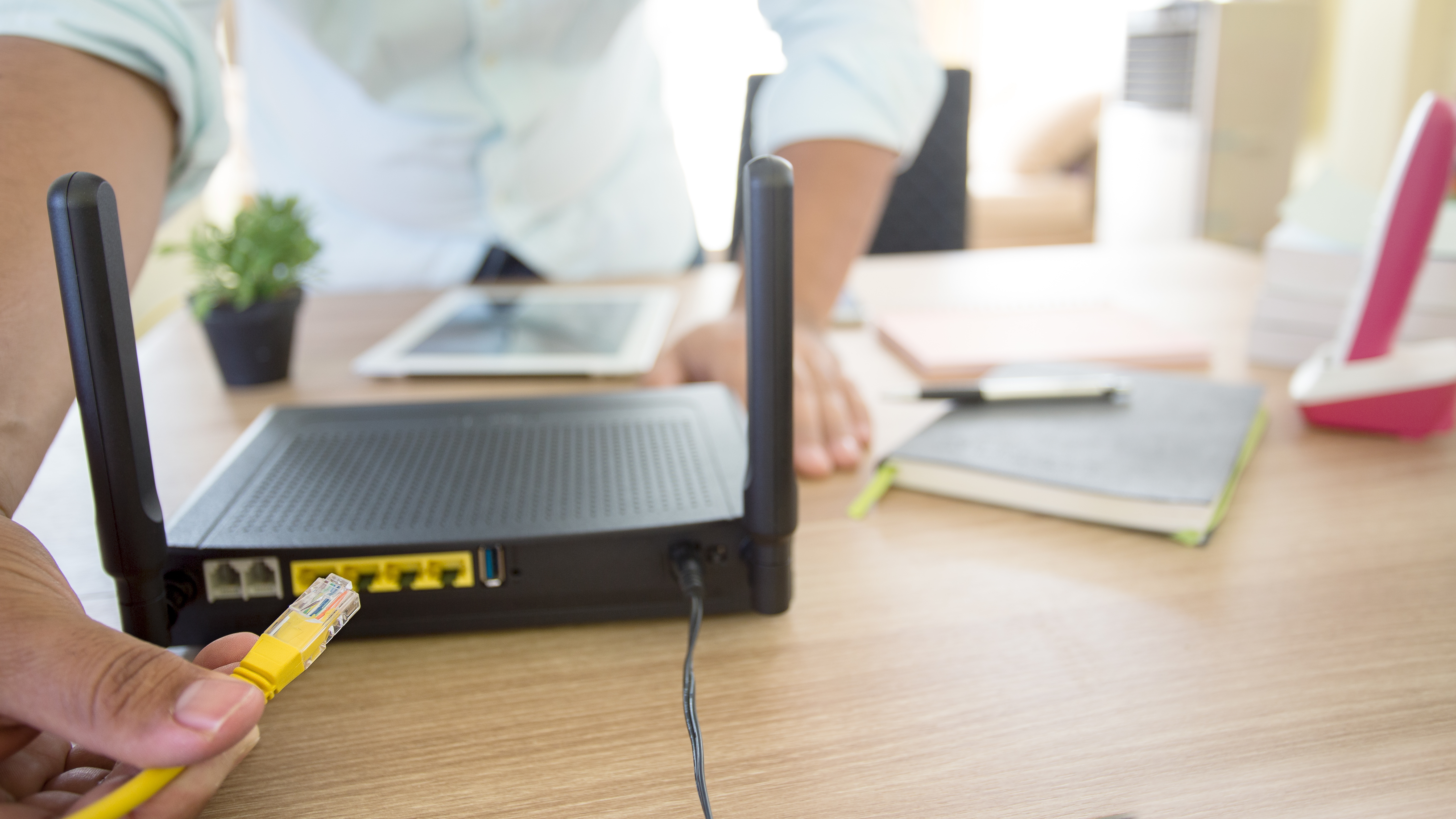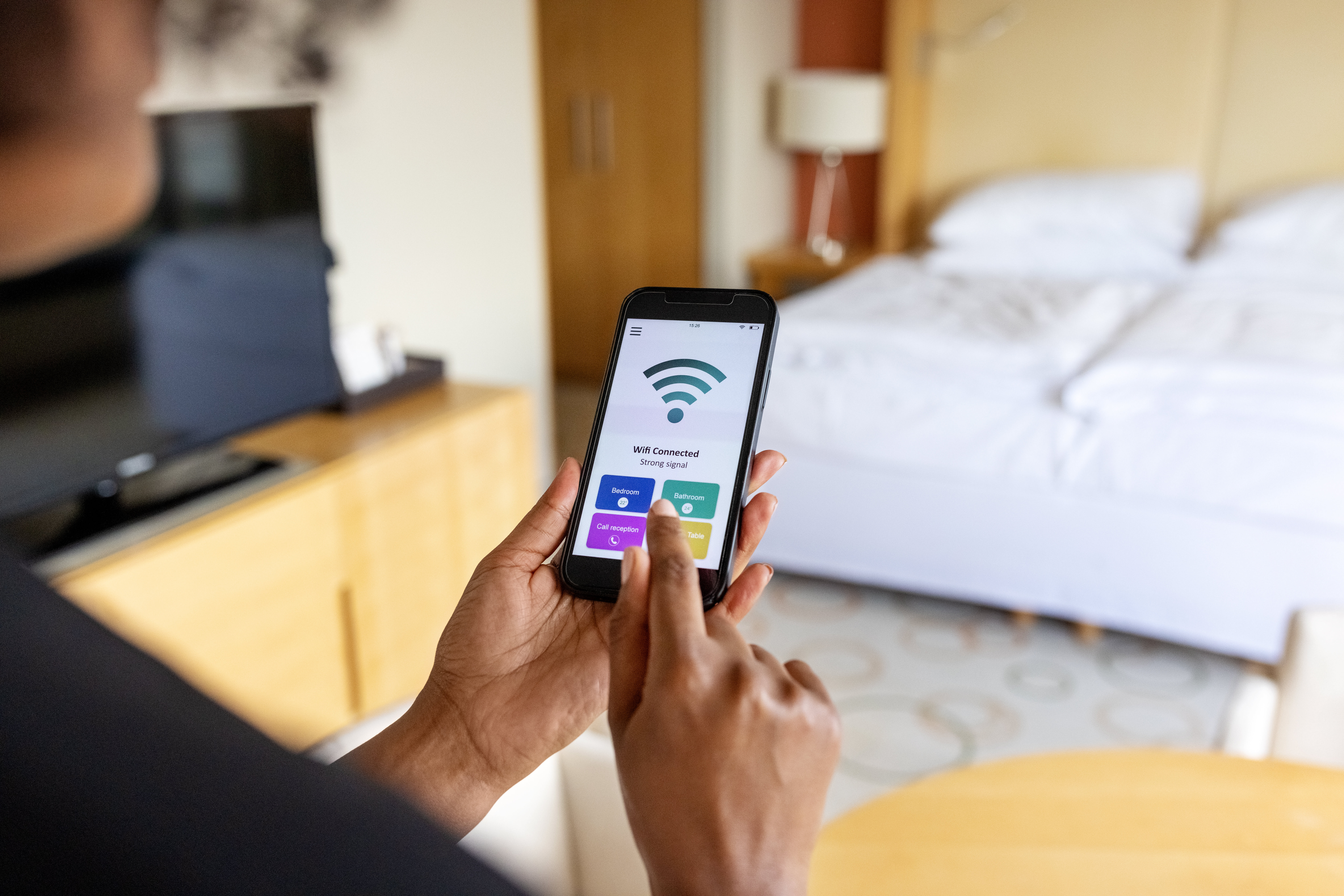Our broadband jargon buster
Ever been confused by the terminology, language and acronyms used with broadband? Well, you're not alone.

If you're currently shopping around for a new broadband deal, then you may find all of the terminology confusing. From Mbps to gigabits and bandwidth, it feels like there's a lot of jargon to unpack when it comes to broadband.
Sadly, if you don't understand all of these terms, you may find it difficult to find the best package for you. After all, if you don't know what all the terms mean, you can't possibly understand which offer is right for you.
We understand that the world of broadband is constantly evolving. New packages are released constantly, while services and changes are made regularly. To help you keep up with this fast-moving market, we've put together this definitive guide to broadband jargon. Read it carefully and you'll find it easy to find a tariff or deal that suits your needs.
Without further ado, here's our definitive guide to the common and important terms you might encounter when you're searching for your next broadband deal.
Common technical broadband terms
To start, we've covered some of the most common technical terms you're likely to see being used to describe different broadband products:
- Average download speed - this is typically the download speed a provider claims you'll be able to receive when you take out a package and it's displayed in megabits per second (Mbps). However, the key word here is 'average', as it in fact means it's a reflection of the typical speeds around half customers will get during peak usage hours.
- Bandwidth - this is the capacity your broadband network has to send data. The higher the bandwidth, the faster the speeds you can receive.
- Broadband - the all-encompassing term to describe the internet connection found in most homes and businesses.
- Data - the information that is transmitted via your broadband. This is transmitted in the form of 'bits'.
- Download - in broadband terms, this is the transmission of data and information from one device/source to another via a broadband network. When considering downloads, most people are concerned with download speeds. This equates to how quickly you can download files. The faster the download speed, the quicker your downloads will be.
- Fixed line - this is broadband that is delivered through actual cables. It's the most common option in the UK as it covers ADSL, cable and fibre connections.
- Gigabits - this is another measurement of the number of bits. In this case, one gigabit is equal to 1,000 megabits.
- IP Address - essentially the location of your device when it's online, but in number form. A bit like a postcode for your broadband.
- ISP - this stands for 'Internet Service Provider', which in turn is a description of any broadband supplier.
- Kilobits - another data measurement unit. Here, one kilobit is equal to 0.001 megabits.
- Megabits - another data measurement and one that's most commonly used when describing the download speeds of broadband packages.
- Network - this is a way of connecting devices together wirelessly via your broadband.
- Symmetrical speeds - this is where your download bandwidth and your upload bandwidth are the same. These are usually offered with some Full Fibre connections.
- Traffic - the amount of users and/or devices on a broadband network at the same time. Much like traffic with cars, the more you have, the slower you go.
- Upload speed - while download speed is how fast you get information to your device via your broadband connection, this is how fast you can send information. It's also measured in Mbps.
- Wireless - in relation to broadband this means being able to access the internet from a device without having to physically plug into a connection. The main example is when a user connects to and uses a WiFi network.

Different broadband types
The next A-Z covers the different types of broadband we can currently get here in the UK:
- 4G broadband - a broadband type that's delivered wirelessly via the 4G mobile network. You can get average download speeds of up to 100Mbps.
- 5G broadband - a broadband type that's delivered wirelessly via the 5G mobile network. This is faster than 4G and can theoretically deliver average download speeds of up to 1Gbps.
- ADSL - or 'Asymmetric Digital Subscriber Line' - it's the oldest broadband type and is delivered via the copper cables of the phone network. This is also the slowest type of broadband as these cables are limited in how much data they can send. Average download speeds are around 10Mbps.
- ADSL2+ - this is an upgraded version of ADSL broadband and can give slightly faster speeds of around 24Mbps.
- Cable broadband - this commonly refers to broadband that's delivered via an independent cable network. A key example is the broadband and TV that's offered by Virgin Media, which is delivered this way.
- Fibre broadband - this is broadband that's delivered by a connection which in part uses fibre optic cabling. This makes it faster than ADSL as the fibre cables can deliver more information much quicker than copper ones. Average download speeds range from 30Mbps to 100Mbps.
- 'Full Fibre' broadband - this broadband sees a property get their broadband via fibre optic cables that run all the way from the local exchange point and into the building. This can then provide huge average download speeds up to 1,000+Mbps.
- Gigabit-capable broadband - a broadband connection that can deliver average download speeds in excess of 1,000Mbps. Virgin Media and EE are two popular providers who offer such packages.
- Independent provider - an ISP who uses a network that's different to the Openreach network. Two of the most popular/widely available examples include Virgin Media and Hyperoptic.
- Mobile broadband - this is broadband (usually 4G or 5G) that's delivered without physical cables via a mobile phone network.
- Satellite broadband - another type of broadband that's delivered without physical cables and is instead beamed into a property via orbiting satellites.
- 'Standard' broadband - this is another term that is sometimes used to describe ADSL broadband connections.
- 'Superfast' broadband - this term is used by some providers to describe fibre broadband connections.
- 'Ultrafast' broadband - a term used to describe Full Fibre and gigabit-capable broadband connections.
It's fair to point out that the above just covers the basic definitions and there's in fact a bit more to it with each broadband option. So if you'd like to know more about them, have a look at our in-depth guide about all the different broadband types that are available here in the UK.

Other broadband technology
This part of our broadband jargon buster gives a run down of terms you'll find describing some of the technology that's involved with delivering and boosting your broadband:
- Coaxial cable - this is a type of cable that's used by Virgin Media as part of its independent broadband network.
- Ethernet cables - a type of cable (often yellow in colour) you can use to connect a device directly to a router. This is then referred to as a 'wired' connection and can be faster and more reliable than WiFi.
- Fibre-optic cable - these are cables that transmit large amounts of data at the speed of light.
- FTTC - or 'fibre-to-the-cabinet' - is the technical way to describe fibre broadband connections.
- FTTP - or 'fibre-to-the-premises' - is the technical way to describe 'Full Fibre' broadband connections.
- Hub - some providers use this term to refer to the router they will send out as part of their broadband package. This is also because they sometimes can do more than just handle broadband and can essentially be a 'hub' for different types of media.
- Landline - a phone handset you can plug into the phone line that services your property.
- Modem - this is a device that is occasionally used to connect a device to the internet. Most households now use a router, but people with older packages may still use modems.
- Phone line - the older copper wire that's joined onto a property, which is used for ADSL and part of a fibre broadband connection, as well as for phone services via a connected landline.
- Router - a piece of tech that allows your devices to access the internet. This can be done via WiFi or through a wired ethernet connection. Each ISP will use and offer different types for handling different broadband speeds.
- WiFi - this is a wireless broadband network (often created by a router) that your devices can connect to in order to use the internet.

The language of broadband deals
Our last glossary looks at some of the language we see being used with the different promotions and deals providers tend to offer:
- 4K - is a screen resolution of around 4,000 pixels, and in relation to broadband, is often used to show the level of streaming quality a connection can provide.
- Antivirus - this is a type of software that helps protect your devices from online threats like viruses and malware.
- Boost - some ISPs may offer you a free or costed 'boost' to your broadband, this basically means a faster speed or new connection.
- Bolt-on - this is a fancy term some providers use for optional extras or additional services. This is because you 'bolt them on' to your current broadband deal for an additional cost.
- Bundle - with certain ISPs (like BT and Sky) you can find ready-made packages that include other services alongside your broadband, these are referred to as 'bundles'. A popular example of this is TV and broadband bundle deals.
- Cooling off period - a timeframe (usually two weeks) offered by some ISPs when you’ve either switched providers or started a new broadband contract in which you have the option to cancel or change your tariff if you aren’t satisfied with it.
- Contract - the agreed cost, services and duration of the broadband deal you sign up for with a provider.
- Dongle - this is a USB device that can be plugged into a device in order to establish a portable mobile broadband network.
- Exit fee - sometimes called a 'penalty', this is a cost you pay to your ISP if you want to leave your contract early. Some, but not all, providers include these in the service agreements.
- Line rental - a charge (typically included in your monthly bill) which covers the cost of the maintenance of the copper phone line servicing your property. These are now only really found with ADSL and fibre broadband deals.
- Openreach - the main broadband network that is shared and used by most ISPs to deliver their services.
- Quad play - this term is occasionally used to describe a broadband deal that includes broadband, TV, mobile and a phone service in one package.
- Set up/Installation - refers to any work that might be required either in your property yourself or by a visiting engineer to get your broadband connection up and running.
- Speed guarantee - with certain ISPs you get a contractual guarantee that your broadband will never drop below a certain average download speed. If it does, you're potentially entitled to compensation.
- Streaming - a means of viewing television or visual content through your broadband.
- UHD - which stands for 'ultra-high-definition' is another commonly referred to streaming resolution that ISPs use to demonstrate the capabilities of certain broadband speeds.
- Upfront fees - these are one-off charges you pay before you get your broadband that you must pay with some ISPs. These tend to cover things like installation, new connections or just the postage of your new router.

Using this jargon to find a better broadband deal
Now you're hopefully a bit more up-to-speed with all-things broadband, the next thing to do is to put your new found knowledge to good use and get yourself a top deal.
So with the above, you might want to bear in mind the following tips and tricks when contacting ISPs to help you get a better understanding of what's available to you:
- Do your research and compare packages and prices across providers
- Investigate and compare these to your current broadband package and tariff
- Ask a potential provider about their available broadband extras
- Enquire about any sales or possible bolt-on promotions
- Discuss the availability of different broadband types with them
- Read up on the network rollout from independent providers in your area
Where to find the best broadband deals
We can also assist you with finding a top broadband package, as our guide to the best broadband deals lists out all the latest offers from the UK's most popular broadband providers.
You can also use our widget below to see what specific deals are available in your area. All you need to do is enter your postcode into the tool and we'll show you what can be found from all the leading ISPs in your location.
Get daily insight, inspiration and deals in your inbox
Sign up for breaking news, reviews, opinion, top tech deals, and more.
Rich is a freelance copywriter and content strategist with over 10 years' experience. His career has seen him work in-house and in various agencies, producing online and offline content marketing campaigns and copywriting for clients in the energy industry.
